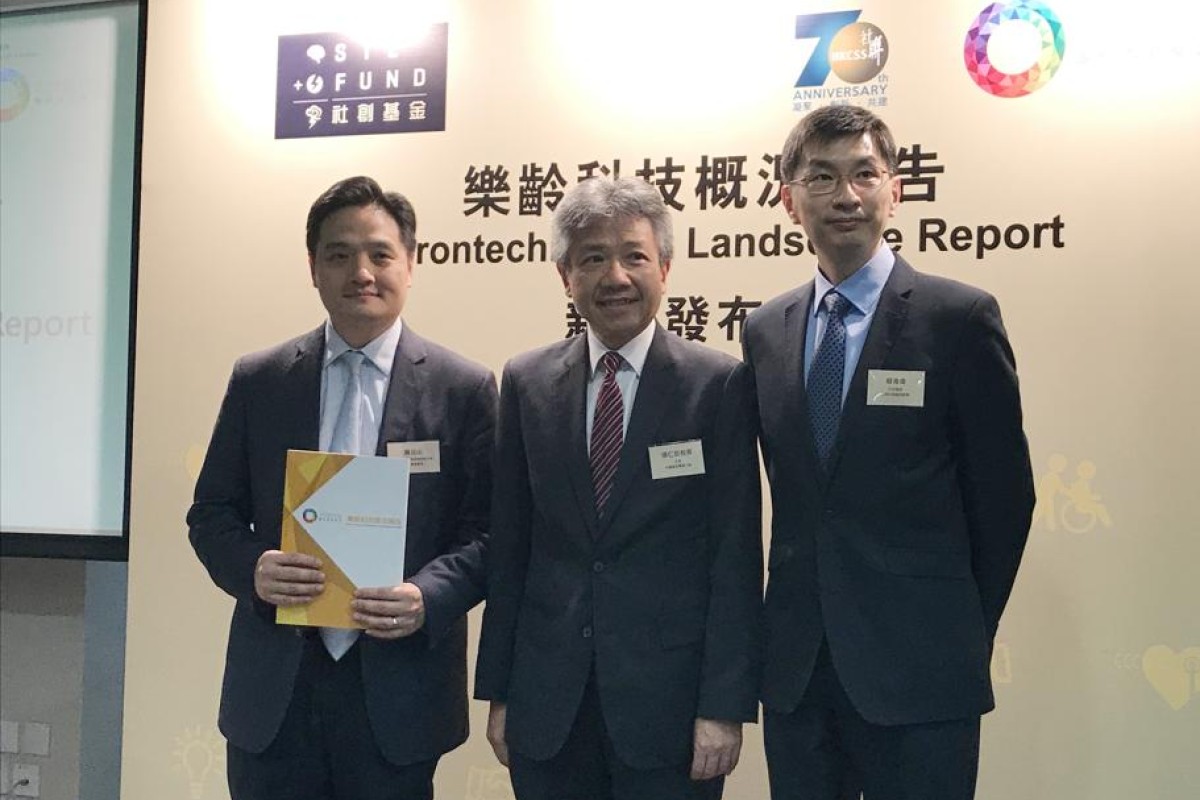
Two of the judges in the Student of the Year Community Contributor category tell us what they look for in candidates and what SOTY means to them
 SOTY judge, Chua Hoi-wai (far right) said that the award serves to encourage and motivate secondary school students "to care about the community and join volunteer services".
SOTY judge, Chua Hoi-wai (far right) said that the award serves to encourage and motivate secondary school students "to care about the community and join volunteer services".Care-giving, education initiatives, volunteering and engagements with social enterprises all help candidates in Student of the Year (SOTY)’s Community Contributor category to stand out, but these might not be enough on their own.
Students must also demonstrate their devotion, and commitment to improving society should be a long-term mission, evident not only in the number of service hours and the variety of their voluntary work, but also in their plans of realising their philanthropic dream.
“SOTY rewards young people who are prepared to give up their spare time to make the world a better place,” said Cliff Buddle, one of the category’s judges , and Editor of Special Projects at South China Morning Post.
The award also “highlights the devotion of candidates who care deeply about social issues ... [and those who] are determined to do everything they can to help tackle [the problems].”
While Buddle sees SOTY as a platform of spotlighting and complimenting young community heroes, another judge Chua Hoi-wai, the Chief Executive of The Hong Kong Council of Social Service, said the award also serves to encourage and motivate secondary school students “to care about the community and join volunteer services”.
“[It] helps teenagers understand the needs of the community, the importance of philanthropy, and how to become caring and responsible citizens,” he said.
For Chua, the ideal Community Contributor, is a passionate, sincere, selfless leader, and good team-player, with a long history of volunteering.
But of all these qualities, he most values selflessness, which to him means “giving time to a cause you believe in ... to help others in the process”, as well as “[creating] opportunities for fellow students to participate, serve, and learn.”
Like Chua, Buddle also considers commitment to serving the community an indispensable factor.
“They need to be aware of social problems in Hong Kong and have their own ideas about how to solve them.”
Having been a judge for this SOTY category for several years, Buddle observes that “many of our [past] winners have demonstrated an ability to overcome challenges in the course of their volunteer work”.
So when it comes to picking the best of many candidates with similar profiles or capabilities, he looks for a student who “cares deeply and demonstrates the courage to persevere when faced with difficulties.”
Chua adds that, on top of a strong will to give, creativity, commitment and leadership are other impressive characteristics that make you stand out from the crowd.
He explained that outstanding students should “be able to identify innovative solutions to social problems”, and convey their future commitment, with experiences in launching or operating social projects.
Chua advises interested and nominated Young Post readers to “understand the needs of service users and demonstrate how your volunteer services could make a change.”
Knowing how community services have helped you in different aspects of your life and being able to verbalise them, he added, would also be helpful, especially for the interviews with judges.
For students anxious about meeting the judges, Buddle advises they “speak from the heart”.
“Tell us what you really think, rather than what you imagine we might want to hear,” he said.
Edited by Nicole Moraleda
